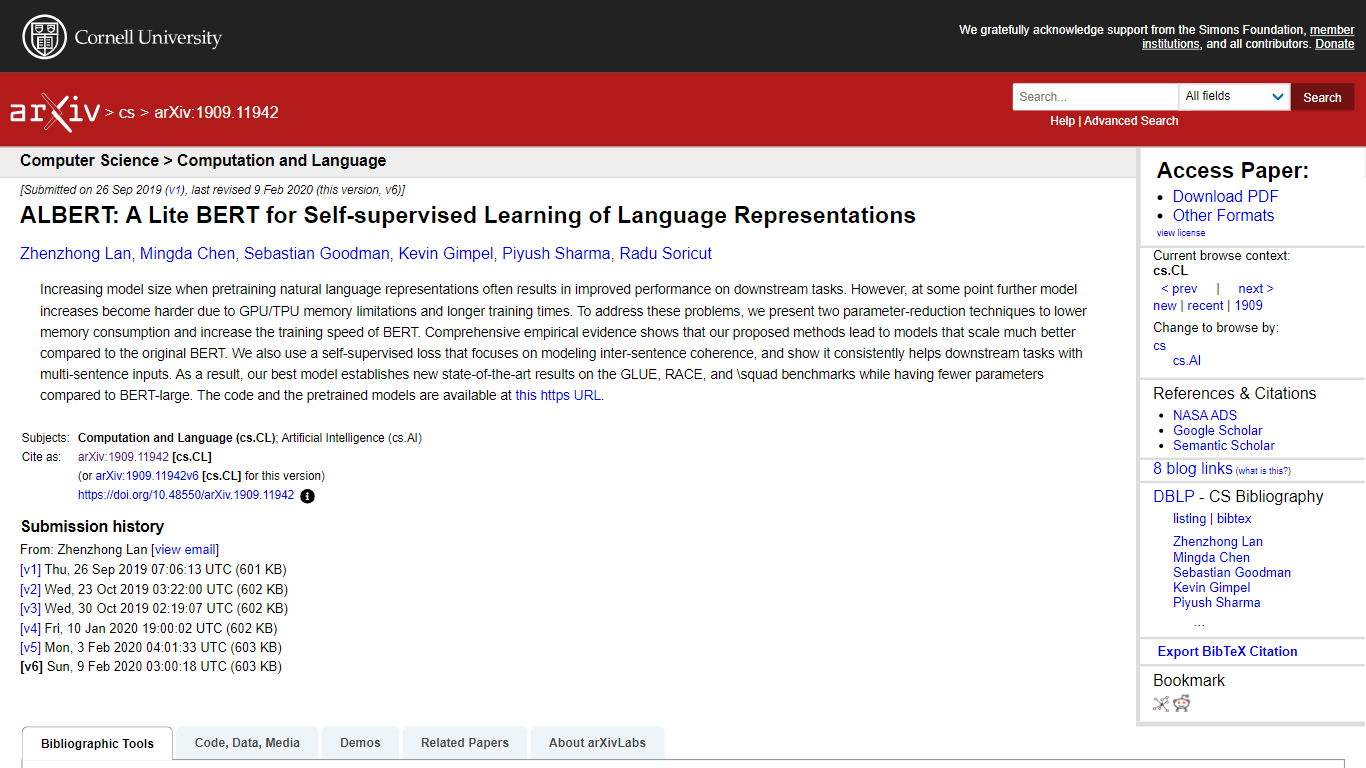
Last updated 10-23-2025
Category:
Reviews:
Join thousands of AI enthusiasts in the World of AI!
ALBERT
ALBERT, short for "A Lite BERT," is an optimized version of the widely-used BERT model for natural language processing tasks. Presented in the arXiv paper by Zhenzhong Lan and colleagues, ALBERT offers two parameter-reduction techniques that significantly decrease memory consumption and increase the training speed of BERT without sacrificing performance.
This advancement addresses the challenge of GPU/TPU memory limitations and the typically lengthy training times associated with increasing model sizes. The paper demonstrates through empirical evidence that ALBERT not only performs better than BERT on a variety of benchmarks, like GLUE, RACE, and SQuAD, but it also achieves state-of-the-art results with a smaller parameter count. The research further introduces a self-supervised loss function that enhances the model’s ability to understand inter-sentence coherence, leading to a substantial improvement on tasks requiring multi-sentence inputs. The authors provide the code and pretrained models for ALBERT, making them accessible for widespread use in the NLP community.
Parameter-Reduction Techniques: Techniques that lower memory consumption and boost BERT's training speed.
Improved Model Scaling: ALBERT scales better than the original BERT, even with fewer parameters.
State-of-the-Art Performance: Achievements include new high scores on GLUE, RACE, and SQuAD benchmarks.
Self-Supervised Loss Function: A novel loss function that improves modeling of inter-sentence coherence.
Open Source Models: The pretrained models and codebase are publicly available for community use.
What is ALBERT?
ALBERT is an optimized version of BERT designed for self-supervised learning of language representations with reduced parameters for efficient learning.
What are the main benefits of ALBERT over the original BERT?
ALBERT offers reduced memory consumption, faster training, improved scaling, and state-of-the-art performance on benchmarks, despite having fewer parameters.
Can ALBERT handle tasks with multi-sentence inputs effectively?
Yes, ALBERT includes a self-supervised loss function that focuses on inter-sentence coherence, which helps improve performance on multi-sentence input tasks.
Where can I access the code and pretrained models of ALBERT?
The code and pretrained models for ALBERT are available on the provided GitHub repository URL.
What sort of tasks can benefit from ALBERT?
Tasks involving natural language understanding and processing, such as language modeling, text classification, and question-answering, can benefit from ALBERT.
